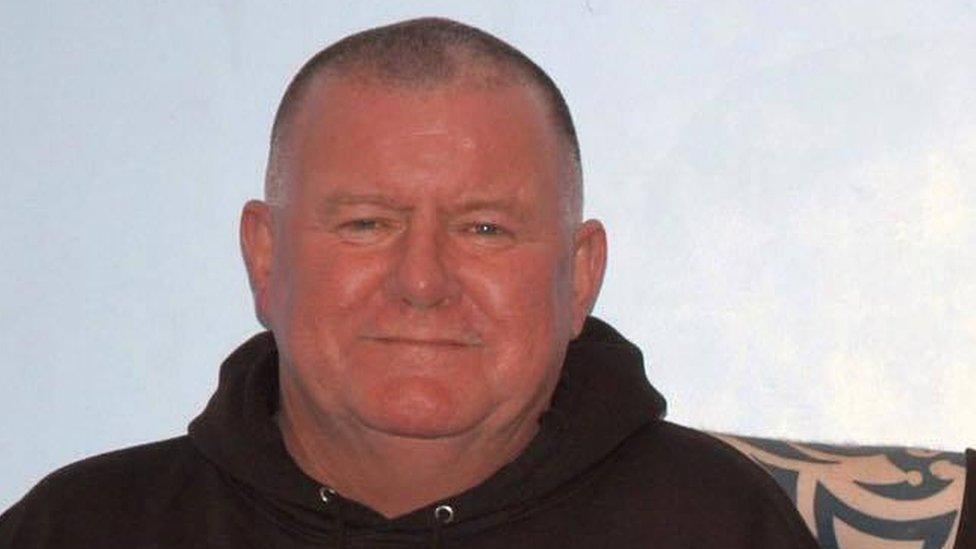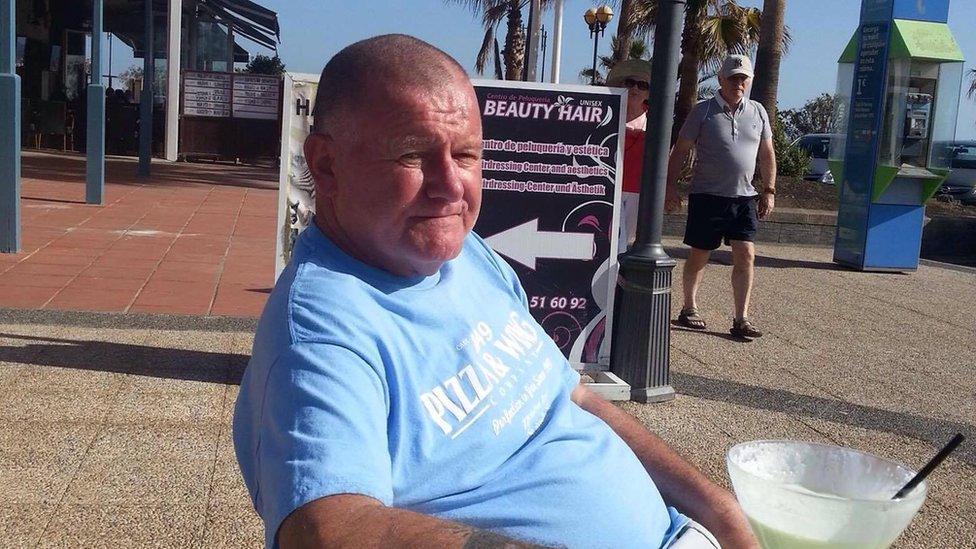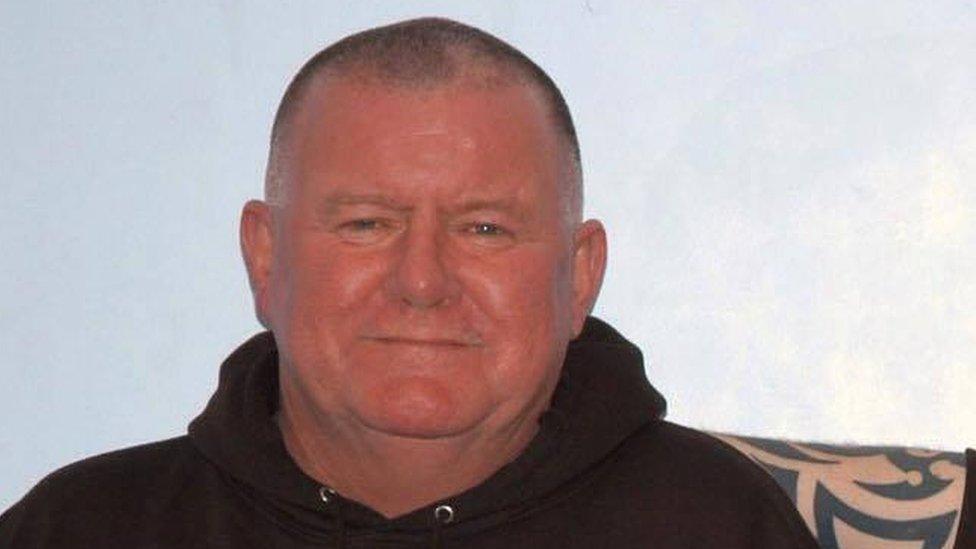Supreme Court halts James Craig's US fraud case extradition
- Published

The Supreme Court ruled James Craig's human rights had been breached
The UK Supreme Court has halted the extradition of a Scottish man wanted by the United States over a £1.2m fraud.
Five judges found James Craig's human rights had been breached as a legal measure which could have helped him had not been introduced in Scotland.
The UK government did not bring in a measure north of the border allowing an extradition to be blocked if a trial could take place in the UK.
It made the decision at the Scottish government's request.
The Supreme Court's ruling, external will set a precedent for other extradition cases.
However, it is not immediately clear how many will now be open to challenge as a result.
Mr Craig, from Dunragit in Dumfries and Galloway, has fought a marathon legal battle against his extradition to the US over a crime he denies committing.
The US Securities and Exchange Commission (SEC) has accused him of tweeting false information about two American companies in 2013, costing investors $1.6m.
He was alleged to have made $97 by buying shares at a lower price and then reselling them. He later repaid the cash plus $120 interest without admitting that he had done anything wrong.

The extradition process against Mr Craig began in 2017
Police Scotland searched Mr Craig's house at the request of the FBI in 2014. A warrant for his arrest was issued by the SEC in 2015. The extradition process began in 2017.
Had Mr Craig been from England, Wales or Northern Ireland, he could have opposed his extradition on the grounds of "forum bar."
It allows an extradition to be blocked on the basis that a trial could "fairly and effectively" take place in the UK and not abroad.
The UK government introduced the measure in 2013 following the case of Gary McKinnon, a computer hacker who successfully fought extradition to the US.
However, the Scottish government asked that it should not apply to Scottish cases over fears that it would interfere with the independence of Scottish prosecutors.
That meant Mr Craig could not use forum bar as an argument against his extradition.
Following a legal challenge by Mr Craig in 2018, the Court of Session declared that the UK government had acted unlawfully by failing to introduce forum bar in Scotland.
New extradition hearing
A sheriff then ruled that Mr Craig's extradition could still go ahead, a judgement backed by the Appeal Court, which said the forum bar failure had not rendered the entire process unlawful.
The UK Supreme Court has now ruled that the failure to bring in the forum bar in Scotland had breached Mr Craig's human rights.
Announcing the decision, judge Lord Reed said: "The Supreme Court unanimously allows the appeal.
"A new extradition hearing may be held before a different sheriff, at which Mr Craig will be able to rely on the forum bar provisions in addition to any other arguments properly available to him."
Forum bar was finally introduced in Scotland in September 2021.
The Supreme Court's ruling means the case is being brought back to Scotland to start all over again, nine years after the original alleged offence.
Mr Craig has declined to comment on the judgement on the advice of his lawyers.
His solicitor Paul Dunne said his client was "very pleased" with the Supreme Court's decision.
"He has felt all along that what has gone on hasn't been right," he said.
"For seven years he has had his life on hold due to a procedure that we knew in 2018 was unlawful."
A Scottish government spokesman said: "When the UK government determined that extradition law should be changed to introduce a forum bar, this was a decision for them, as extradition is a reserved matter.
"But the Scottish government indicated it would be preferable for this provision not to apply in Scotland because of concerns it would potentially impact on the independence of the role of the Lord Advocate in making prosecutorial decisions.
"Instead of not including provision for Scotland, the UK government decided to extend the forum bar provision to Scotland in legislation, but then did not commence the relevant provision for Scotland. This was entirely a matter for the UK government."
Related topics
- Published2 September 2020

- Published3 June 2020

- Published5 July 2019

- Published28 May 2019
